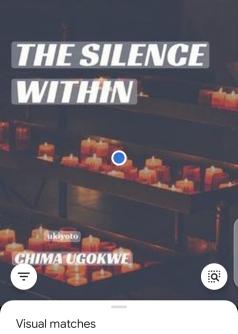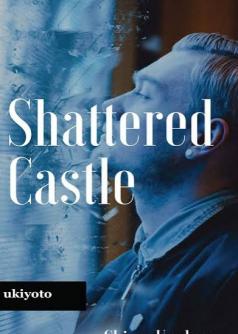Chapter 88
Abalịdiegwu– armed robber or literarily night is dangerous
Abanto – wears for young men old who are enough to cover their nakedness
Ada– first daughter (or a title given to the female child of the family)
Adaka – specie of yam
Afọr – third market day
Agbara ji - yam stake
Agbara – small deity
Agbara nwanyị –a full woman who is useful to the clan, usually someone who has passed the age of childbirth
Agụkaibeya– lion that is greater than others
Ajọ ọhịa – evil forest
Aka ntụtụ–pilfering (someone who likes to or steals what does not belong to him)
Akataka – title for great men
Akụgbara–small particles of a dried grass that sting
Akwụ– tree usually where deities are located under
Akwụna - prostitute
Alaobi – one’s direct land inherited from his father
Ala or anị - land
Ama ekwensu– path to Satan’s house
Amadịọha– deity
Ameo – amen
Anụọjọọ– ravenous animal
Anwụ omere dina nwanyị -evening sun for the newly married (it is used to explain young couples who are in honeymoon; the presence of the evening sun intimates their relationship)
Anwụrụ– snuff
Ara agwụ – madness caused by one refusing to answer the call of his chi
Arụ– abomination
Asha – the talking bird
Asọ - abomination
Asọkwa– abomination
Ata – strong rope of tree
Awaị – yam food (mainly prepared with plenty of water)
Awụ – used to express feeling or sorry for one
Azụeruala – the back that does not touch ground
Chakoloko – a species of white bird that emigrates during dry season in some part of Africa and resides on the riverside
Chi– gods
Chi ọjọọ – bad luck, bad god or bad fortune
Chi okike – God of creation
Chinwa – god of child
Chukwu – Almighty God
Dabere chebe – sit and think( seats usually for the old kept in their resting place)
Dike – strong one
Dike alaa – the great one has gone (lamentation for the dead)
Dimkpa – full grown man
Egbendu – gun salute (used during important outing or events or during funeral of great persons)
Ego ayọrọ– coins
Egusi – melon
Ejima – twins
Eke – first market day
Eke – python
Ekpenta – leprosy
Ekwe - drum
Ekwensu – devil
Enyi – friend
Eze - king
Ezeji – king of yam
Eziokwu –truth
Fufu – pounded cassava
Gbamgbam – zinc
Hei– exclamation
Ịba- malaria
Ịchaka– a great masquerade
Ichi – cuts made to title holders during initiation
Ịgba afa – socery
Ịgbanye nwanyịihe–first traditional marriage outing among the Igbo's, introducing the in-law to the daughter’s immediate family members
Igbo enwe eze – Igbo’s have no king
Igbu chi – the custom of mutilating great men for senior citizenship in ancient times.
Igbu ehi– slaughtering of cow (a tradition among the Igbo’s by the head of the family or someone)
Ihudiya – the face of husband (title for married women that distinguishes her from others)
Jiọcha - white yam (a specie of yam)
Ịkpụkpa– iritating boils in the skin
lli etere nzu – a beautified grave (used to explain a good-for-nothing thing)
Iriala – yam pest
Iriekpe– inheriting what belongs to a man who dies without a successor or male child
Ịtọebula – untying of ram
Ịtụmmanya– suing one to the elders with wine
Izu–the first few months of a woman’s pregnancy.
Jeso Krisiti – Jesus Christ
Jisọsụ- Jesus
kịtịkpa– a disease in form of rashes that eat up the skin
Mbammụọ– stroke
Mbanụ- disagree
Mgbadike – great masquerade
Mkpa - needs
Mkpọkịtị– a masquerade highly considered deadly
Mkpọnala - gun salute (use during important outing or events or during funeral or burial of a great person)
Mkpụrụ mmiri - snow
Mmanwụ –masquerade
Nchi - grass cutter
Ndewonu - well-done
Ndị be anyi mma mmanụ – my people I greet
Ndị ichie – titled men
Ndị idem - heathens
Ndị nna ochie – one’s maternal uncle
Ndị ogbunaabalị – night killers
Ndịụṅam ozu – those who carry the corpse, dance and run with it
Ndịọbịa - visitors
Njenwanyị–sexually transmitted disease from a woman
Njute – a fetish wood used for oath taking.
Nkwọr – fourth and last market day
Nnaa – title for the male sons of the family; or for a family head (also used to address men)
Nna anyị – title for fathers
Nna ga alu– old unmarried daughter of the family (literally, father will marry)
Nna ochie – ones maternal uncle
Nne ngwanụ – woman, over to you
Nne– title for female daughters of the family (used to address women)
Nte– a small insect that lives underground
Nwadiala– the child of one’s married sister
Nwam – my child
Nwanjụ– a grass that can keep one wandering in the bush all day
Nwaokorobịa – young man
Nwaorie nwanne ka ọdịbazie – my brother, farewell (farewell speech for the dead)
Nwata kwọchaa aka osoro okenye rie- nri – when a child washes hands, he eats with the elders
Nza – Raven (the smallest bird raven)
Nzu – white chalk
Obi – man’s resting place
Obidiya – the heart of husband(title for married woman favoured by the husband)
Ọbụ– specie of bird
Ọbụ ya – that is true
Ọchụ– murder
Odere – body of water that does not move about (lake)
Ofeke – foolish person
Ọffọ– ancestral staff (highly respected as tool to seal important matter)
Ọgaranya – rich man
Ịgba mmanwụ – masquerade festival
Ọgbajirigwe – breaker of iron
Ọgbụ- tree with usually big branches that shield people mainly in dry season
Ogene – small drum
Ọhịaudo – forest of peace
Ọhụ – electric fish
Ọja - flute
Ọja – whistle
Oje na mmụọ– walker with the spirit (used to explain someone who is great in medicine)
Ọrjị - iroko
Ọjị– kola
Ọjịeze nọ eze na aka - the king’s kola is with the king
Ọka – maize
Ọkara dimkpa – half man
Okere – a fly
Okokporo - bachelor
Ọkpọkọ - snuff pipe
Okpoko – the most foolish bird
Ọkpụ – cat fish
Ọkpụolu- a title given to someone who survived after many losses in the family.
Ọkụite – the tradition of killing one diabolically from tips of steps he had taken on the soil.
Ọkwa - bird
Okwu ebiela – everything has been sealed.
Olisa – God
Ọmasịrịdi ya– the choice of husband (traditional title for married woman from the husband)
Omenala - tradition
Omenelu – opposite of tradition
Ọmụ– the maturing leaves of palm tree that represents sacredness.
Onugbu – bitter leaf
Ọnụkọ– a talkative bird
Ọnwa anọ– the fourth month
Onyekurum - the night spirit which the Igbos believe announces great events or the death of great people
Opi - flute
Ọpụpụ ada – when a girl marries and leave home
Orie – second market day
Ọtangwa– the night spirit which the Igbo's believe announces great events or the death of great people
Ọtazi – a specie of vegetable
Otopuru relaa – big for nothing (a wasted giant)
Oyiridiya– a woman who resembles her husband (a title from a man to his wife)
Ọzọ- title
Sengele– dent less (used to describe women who see themselves as higher than others)
Ụchakiri–a tree
Ụdara- apple
Udele- vulture
Udengwọ– palm wine plantation (usually located close to the water)
Udu - drum
Ugiri – a tree
Ugo– eagle
Uhie - a red native colour for decorating and dying a woman’s body)
Ụkpaka– a fruit used for preparing a delicacy
Ụkwa- breadfruit
Ụloarụsị – small house for one’s ancestor
Ụmụada– married daughters of the clan or the family
Umudi kwenu – a salute for kinsmen
Umumgba – children of wrestlers
Ụmụummụọ– spirits
Ụmụne – a sacred tree for making land boundary or taking an oath
Ụmụnna- kinsmen
Ụpọ – a form of yam food
Ụraga – junior masquerade
Uri- camwood
Ụsụ– bat
Ụsụegusi– delicacy prepared with melon
Ụsụọcha – white bat
Ụsụọka - delicacy prepared with maize
Yaa – agree
Book Comment (49)
End





Mas bom amei muito a livro
20d
0muito bom
23d
0amazing
10/07
0View All